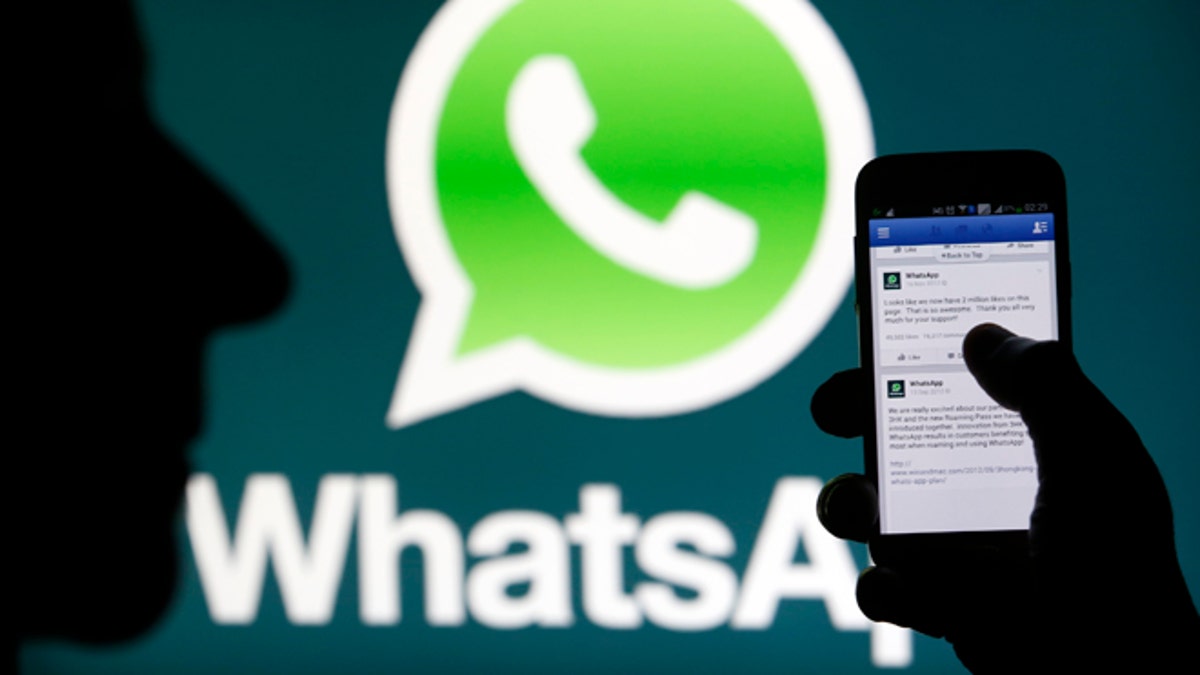
A Whatsapp App logo is seen behind a Samsung Galaxy S4 phone that is logged on to Facebook. Facebook Inc will buy fast-growing mobile-messaging startup WhatsApp for $19 billion in cash and stock in a landmark deal that places the world's largest social network closer to the heart of mobile communications and may bring younger users into the fold. (Reuters)
If you thought Apple won the encryption war against the FBI -- think again. FBI Director James Comey says we can expect more litigation from the U.S. government, as it tries to access more and more encrypted devices.
Comey, who spoke to a room of reporters, says encryption is "essential tradecraft" of terrorists like the Islamic State, according to Reuters. A boon to terrorists, encrypted phones hinder law enforcement's ability to gain access -- access that could potentially provide crucial information for investigations.
It's what happened in the San Bernardino case. One of the shooters, Syed Farook, left behind a locked iPhone 5C. Apple initially complied with the investigation, but when the company received a court order demanding it create a tool that would provide backdoor access into the iPhone, Apple refused.
The iPhone maker believed the tool could fall into the wrong hands, and would then jeopardize the security and privacy of all its customers.
More and more services and devices are being encrypted by default, and the government believes it deserves to have access in case one such device is used by a terrorist or a criminal. But opening access solely for the government is unrealistic -- doing so would likely weaken the security to allow anyone to break in.
The FBI eventually dropped the San Bernardino case, and a similar but unrelated New York iPhone case. A team of anonymous hackers managed to break into the device, and the FBI paid them for the technique. Comey says he has an inkling of the identity of the contractor, but he can't provide "people's names."
The director says none of the 500 phones the FBI has had in its possession since October have the same model or operating system version as the iPhone used by Farook, but the Bureau is still trying to find a way to use the technique it bought to crack them.
He singled out WhatsApp, an app that recently turned on encrypted calling and messaging for more than a billion users. That new feature is "affecting the criminal work (of the FBI) in huge ways," Comey said. But that doesn't mean the FBI is ready to target the Facebook-owned messaging service yet.
At the end of the day, the FBI is still unlocking phones -- of the 4,000 examined since October, only the 500 mentioned earlier have not been unlocked.
